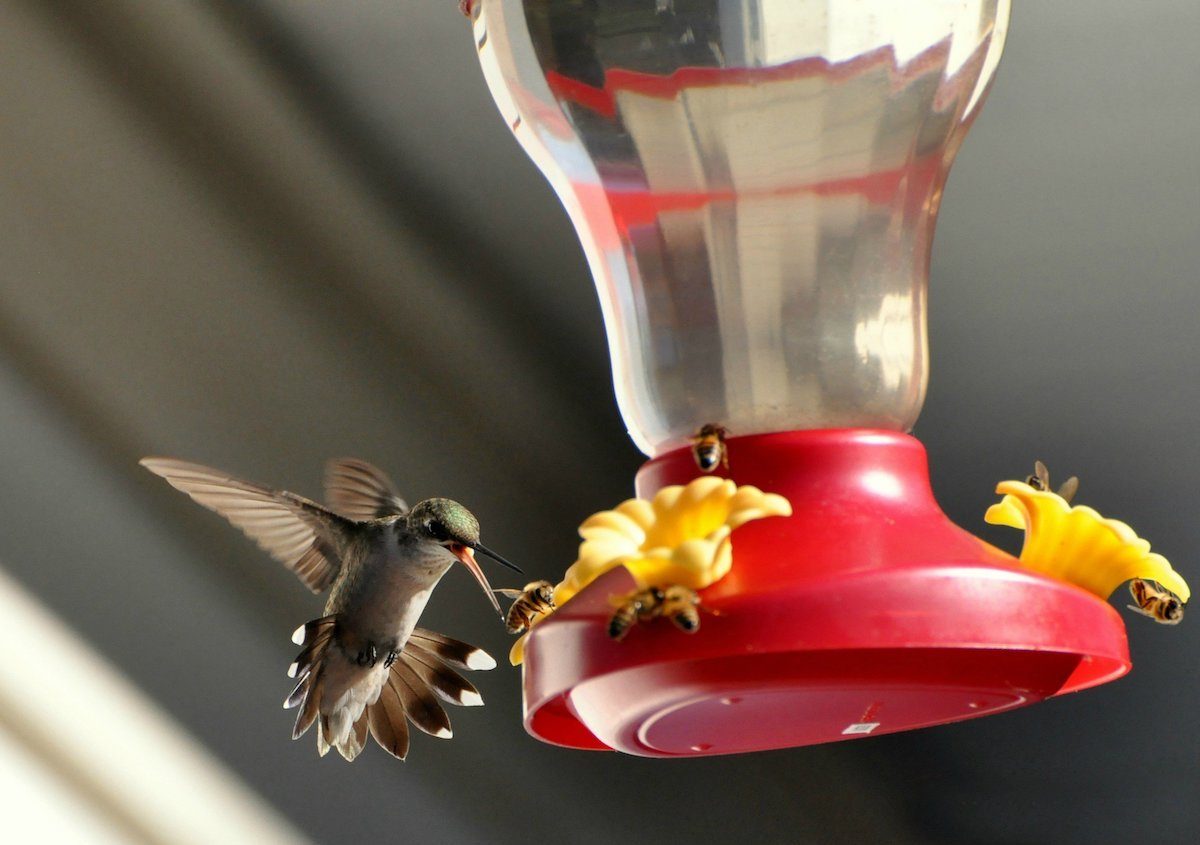7 Natural Ways to Keep Bees and Ants Away From Hummingbird Feeders

Natural Ways to Keep Pests Away From Hummingbird Feeder
Feeders filled with sugar water attract hummingbirds. But sometimes not-so-welcome guests like ants, wasps and bees crawl into hummingbird feeders and create problems. For frustrated backyard birders, it may be tempting to use pesticides or insecticides to deter bugs.
But Emma Greig, the project leader for Project FeederWatch of the Cornell Lab of Ornithology, advises against it because it may harm birds, as well as the bees whose populations are declining. “You can deter insects while remembering they’re part of nature, too,” says Greig. Instead, try some of these all-natural solutions. The birds (and bees!) will thank you.
Check out these fascinating facts about hummingbirds:
1. Choose Red Saucer Feeders
With their long tongues, hummingbirds can reach the nectar in saucer feeders — but insects can’t. And while hummingbirds prefer the color red, bees are attracted to yellow. Here’s the recipe to make your own hummingbird sugar water. Replace the sugar water every few days.
2. Attach an Ant Moat
Ant moats are typically about three inches wide and one to two inches deep. Hang them above hummingbird sugar water feeders. Because ants can’t swim, water is an effective deterrent. You can also buy hummingbird feeders with built-in ant moats. Keep the moats clean and filled with water.
3. Hang Feeders with Fishing Line
Fishing line is too thin for ants to climb, which means they won’t be able to reach your hummingbird feeders for a free meal. Learn how to clean hummingbird feeders.
4. Slip Nectar Guard Tips Over Hummingbird Feeder Holes
Nectar guard tips block insects like yellow jackets, but hummingbirds can still get to the nectar. Check out these feeders hummingbirds will love to visit.
5. Periodically Move Feeders
Just moving feeders three or four feet will help insects lose track of them. Birds will still find them easily, but insects often won’t.
6. Place Fake Wasp Nests Nearby
Remove all active wasp nests from the area where you want to place your feeders. Then hang the fake wasp nests in protected areas (away from rain) to deter real wasps, which are territorial and won’t typically venture into a place they think is already occupied.
7. Plant Bee- and Hummingbird-Friendly Flowers
Give the bees an attractive alternative. Pollinators will flock to nectar-rich flowers in containers and the garden. Try colorful annuals like fuchsia and impatiens, and perennials like trumpet vine, bee balm and cardinal flower. Check out our expert tips for attracting hummingbirds to your backyard, including the best plants, feeders and other backyard features
Up next, this is what you should if you find a bird’s nest in your backyard.
No comments